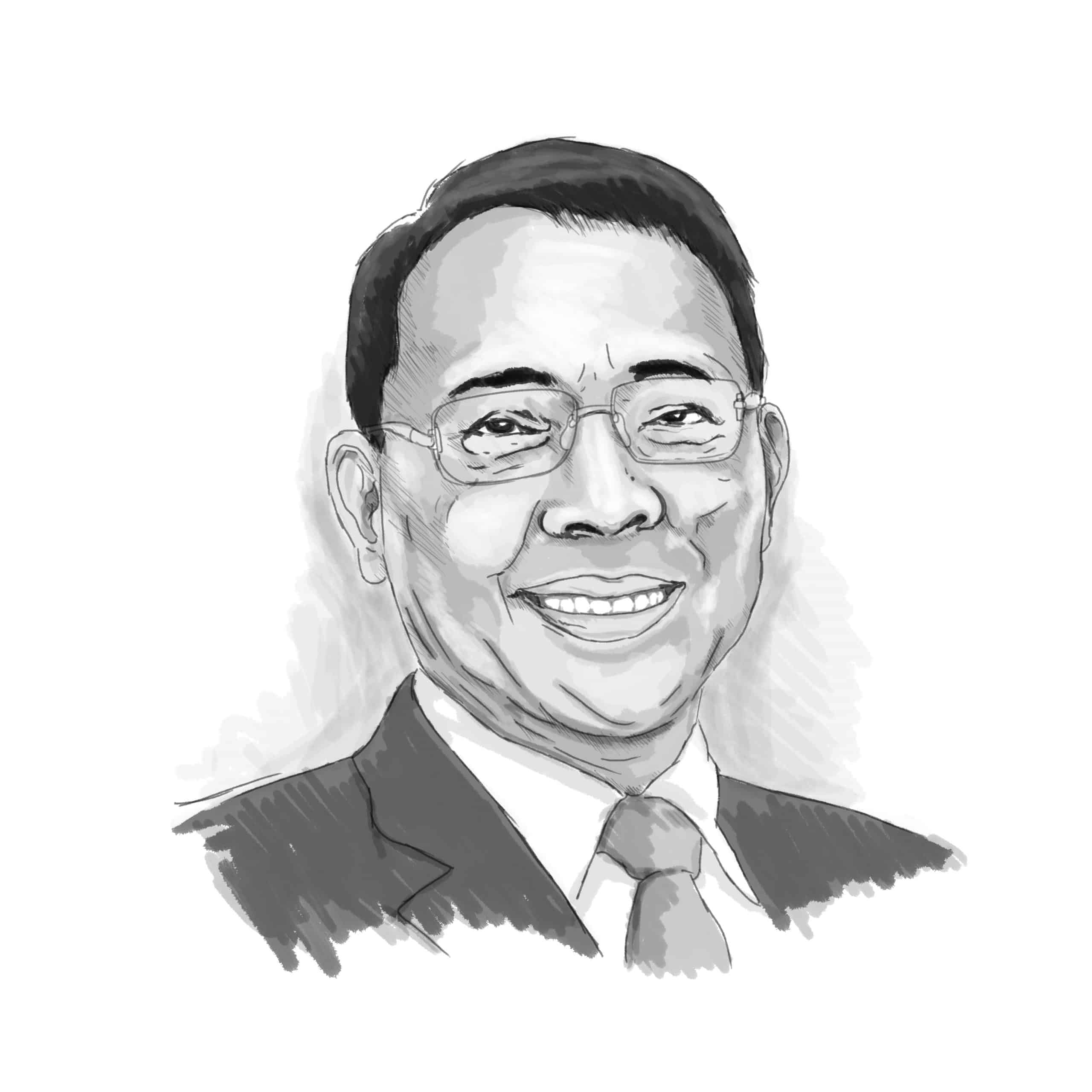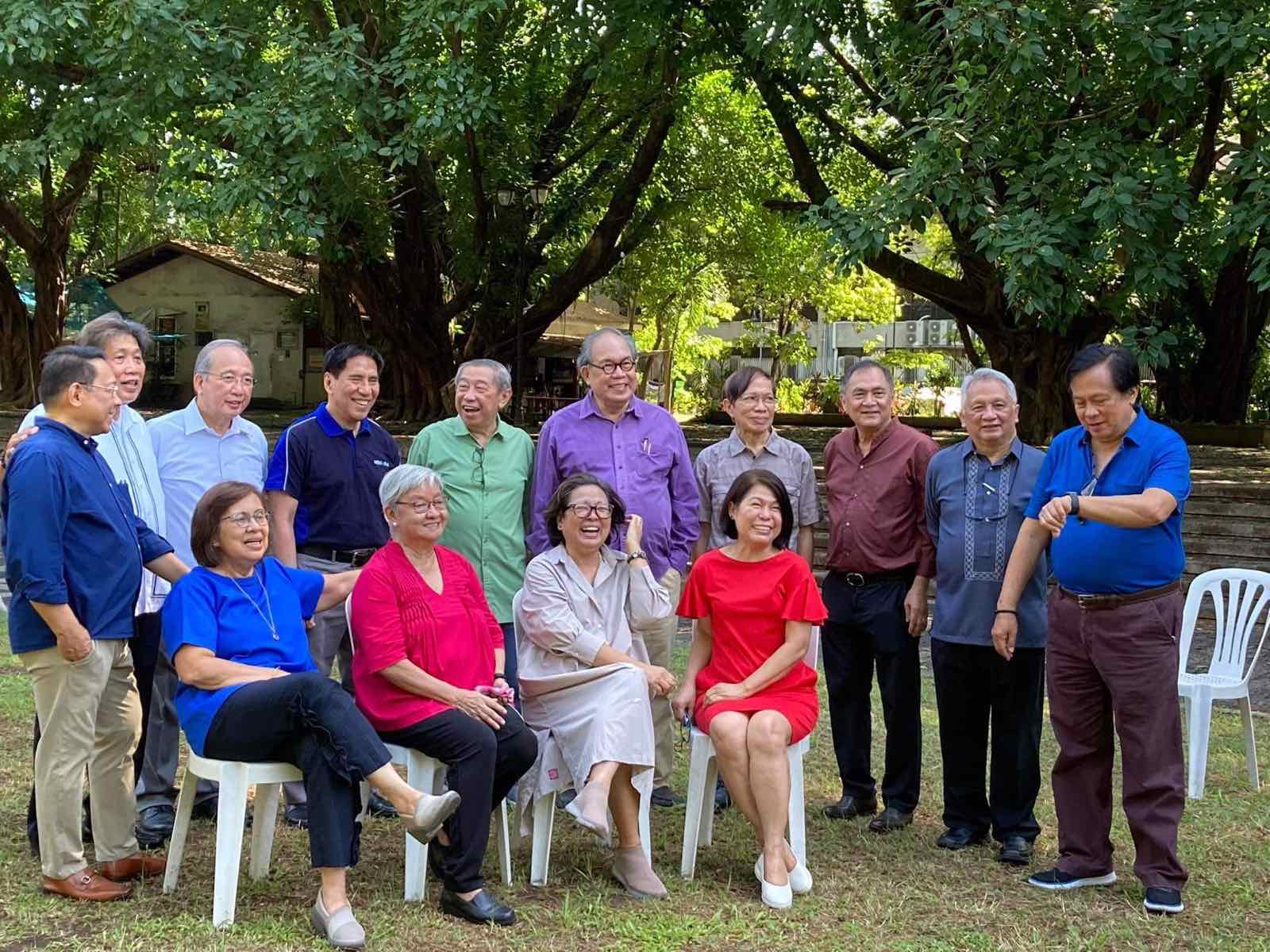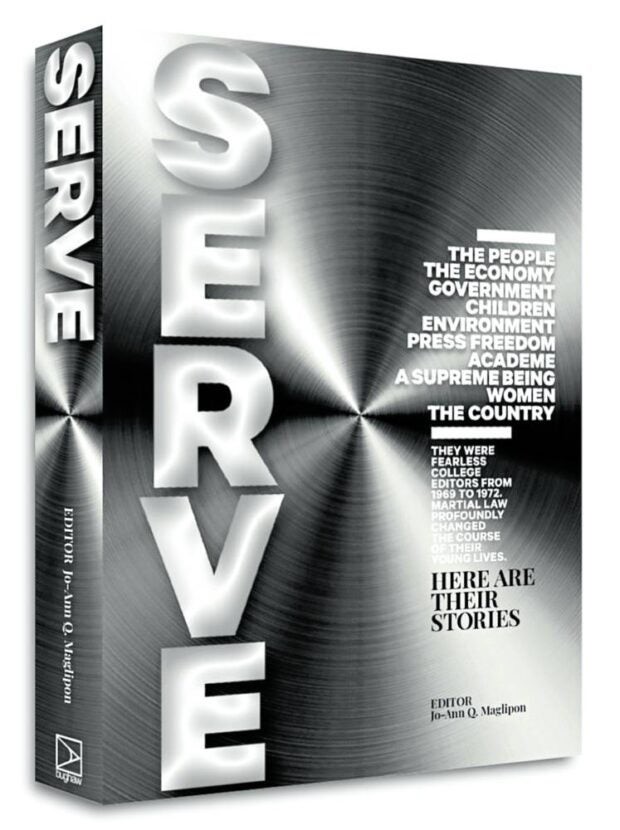
OF SUBSTANCE AND SPIRIT
In a way, our book 1, Not on Our Watch: Martial Law Really Happened, We Were There, published in 2012, may be likened to Benjamin Franklin’s The Autobiography. Written with interruptions at various points in his colorful life as a writer, publisher, inventor, diplomat, scientist and philosopher, Franklin’s autobiography was first released in French in a rather raw form. It was an unfinished account of his multifaceted life, never quite completed based on the original outline he himself prepared to guide his writing. His is a book described by many as disjointed, inaccurate and mangled yet considered to be a good moral tract that once upon a time was taught in American schools.
Book 1 was not birthed from an outline. It was rather a spontaneous effort on our part, all campus editors, to narrate our experiences in the darkness of martial law. We wrote so that we would not forget, with such optimism that we could touch our people’s sensibilities not to allow any possible resurgence of the past. But it did not seem to have a proper closure because our readers waited for 11 years to see the sequel, the scarring effects of martial law on what we made of ourselves.

THE AUTHORS seated from left: Sol Juvida, Judy Taguiwalo, Jo-Ann Maglipon, Angie Castillo. Standing from left: Diwa Guinigundo, Sonny Coloma, Rey Vea, Manolet Dayrit, Elso Cabangon, Butch Dalisay, Ed Gonzalez, Jaime FlorCruz, Alex Aquino, and Senen Glorioso.
One may ask, whatever happened to those campus editors who were forced to live in China, learn Mandarin, and totally uprooted when then President Ferdinand Marcos declared martial law in September 1972? What about those campus editors who were detained without charges, tortured and released as if everything was part of a blocking rehearsal? And the many who decided to bring the struggle to international arena by establishing non-governmental organizations to broaden the audience for democracy in the Philippines?
We hope to see a closure, or so it seems, when we finally launch our book 2, SERVE, at 5 p.m. this Saturday, Sept. 9 at Fully Booked in Bonifacio Global City. All 19 of us except the late Ambassador Chito Sta. Romana and Jones T. Campos — Alexander Aquino, Elso U. Cabangon, Sonny Coloma, Bob Corrales, Mercy M. Corrales, Butch Dalisay, Manuel M. Dayrit, Jaime A. FlorCruz, Senen D. Glorioso, Eduardo T. Gonzalez, Diwa C. Guinigundo, Sol Juvida, Derly Magcalen, Thelma Sioson, Judy M. Taguiwalo, Angie Tocong and Rey Vea — and the editors’ editor, Jo-Ann Q. Maglipon, will be there to fellowship and to sign books of our friends, colleagues and other interested parties.
To those questions we posed, SERVE will offer various contributions to show how “martial law profoundly changed the course of (our) lives.” As one of the foremost Filipino writers of this generation, Butch Dalisay, recently wrote, “This time our barricades consist not of desks and chairs but of memory itself and, more formidably, of hope, courage and a continuing faith in the good.” Serving the people was not lost in us, but the struggle shifted to various areas of personal engagement in the Philippine economy, government, press freedom, academe, God, the country and people.

This is the continuity that book 1 needed.
In his autobiography, Franklin enunciated his lifelong commitment to what is now described as non-religious Puritan virtues and political values, succeeding in popularizing his views through his publication business: equality, education, hard work, thrift, honesty and integrity, temperance, charity and community spirit. He would quote the Scripture as he preached about all these values, that man’s true worth is measured by his moral behavior, not his class or even his occupation.
No, we would not measure up to Franklin’s invention and science, but definitely by our experience in the campus, and after we left it for the marketplace, and by the two books we have published, we would have thought we have mustered enough soul to talk about sacrifice and service, love for God and country. Looking back, we survived the dictatorship and perhaps there is something we left behind. This is the learning of a lifetime.
And SERVE is our documentary.
If Franklin’s autobiography, incomplete as it was, qualified as a good moral tract worthy to be taught in schools, SERVE offers “forward pathways … for any budding patriot interested,” to quote our editor Jo-Ann Maglipon. Her basis is undeniably the relevance of the authors’ ideas forged in the people’s continuing struggle for democracy and their dream of prosperity and peace for this country.
Was it not Franklin who also wrote that “If you would not be forgotten as soon as you are dead and rotten, either write things worth reading, or do things worth the writing.”
As Jo-Ann clarified, the book is not all about old people’s remembering the past. After all, perhaps this is what we need to do so we get to develop better discernment of ourselves and our people. Then we would be prepared to fight for the future.
We assure our readers that because we chose not to forget, in SERVE, we would see expositions worth reading because they are all based on lives serving others, and therefore, they are worth writing. But only time can tell whether with SERVE, we have truly reached a closure.